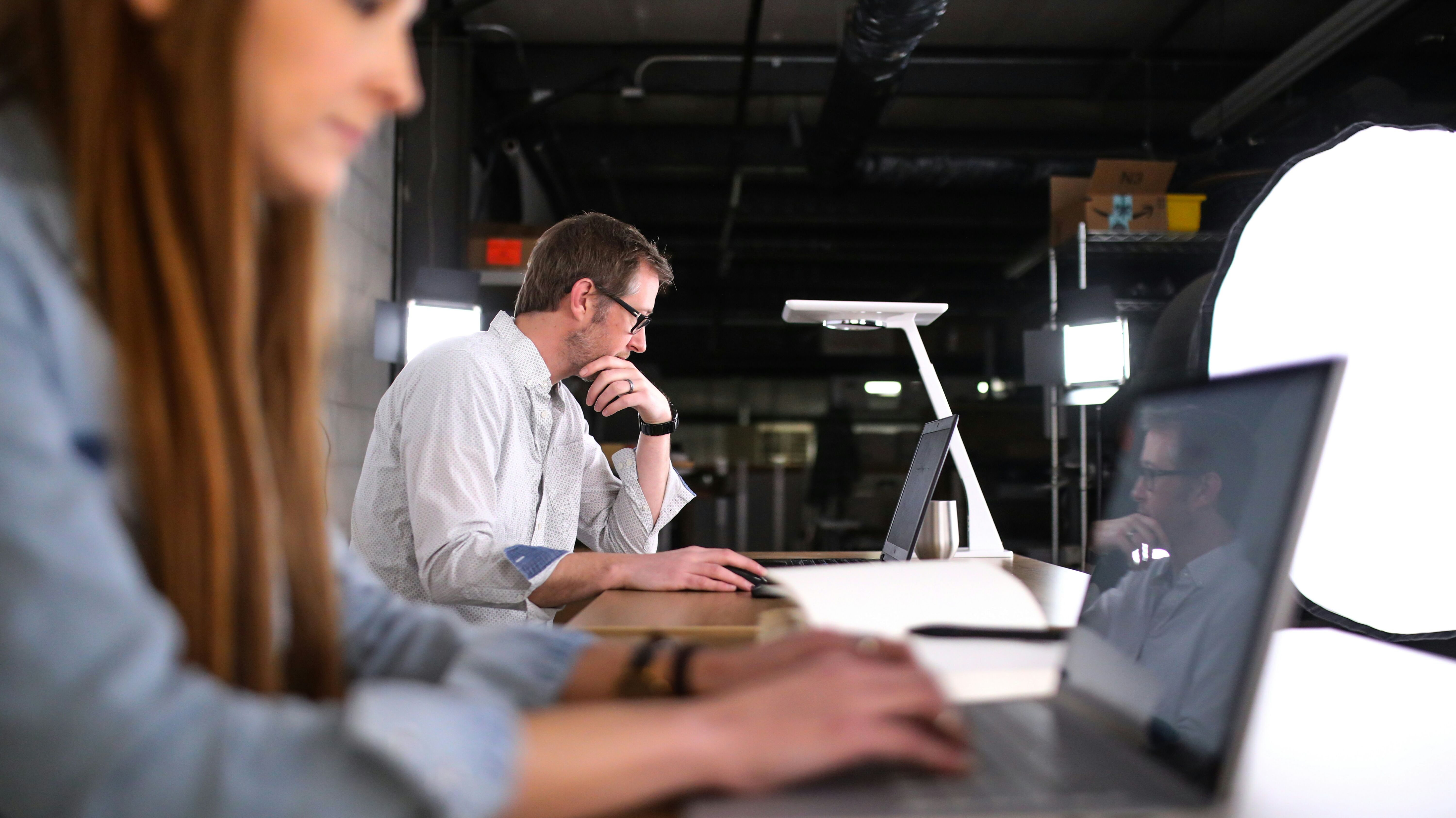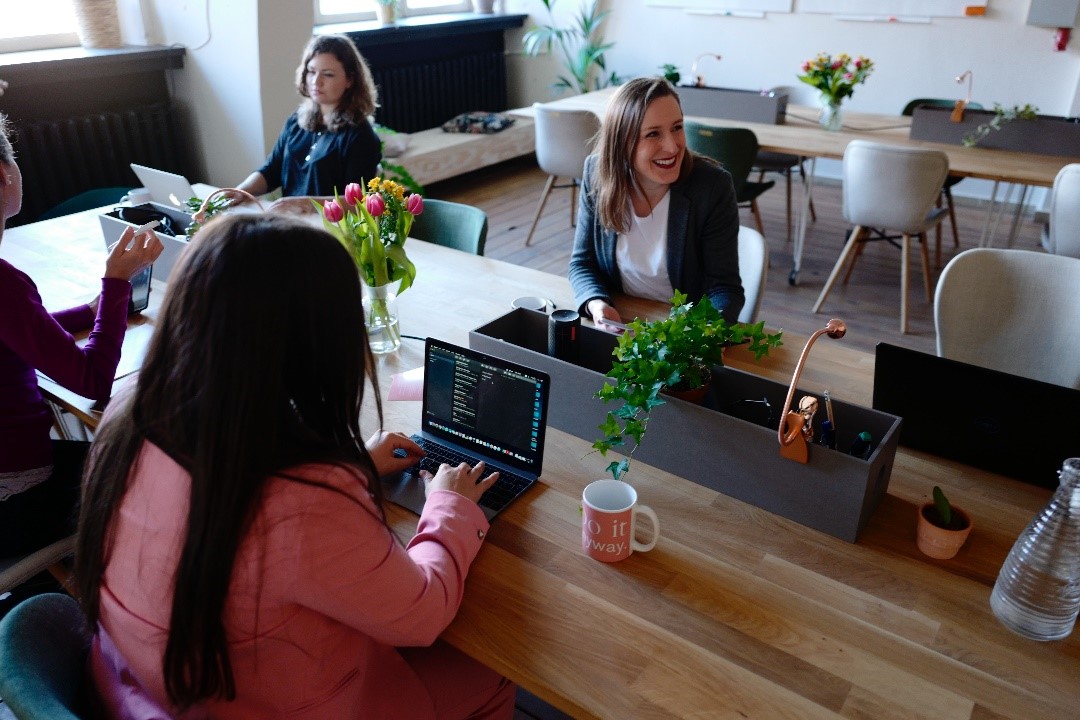Music for productivity the ultimate work playlist guide
What’s the best music for productivity? It’s a simple enough question – and finally, we
Home » UK workers lose up to 15 hours a WEEK to distractions – totalling 74 days every YEAR

Our new survey* of UK workers has revealed that over two-thirds (67%) of employees find themselves distracted during the workday.
Over one in six (15%) spend nearly a third of the working day (two hours) distracted, while 7% admit to spending three hours of the workday, which equates to around 15 hours a week, distracted. Across one year, workers risk losing 74 working days to distractions.
Office workers, however, are less distracted than remote workers. A third (33%) of office workers share they are distracted for 30 minutes or less, while more than a quarter (26%) of remote workers admit to being distracted for around an hour.
We surveyed 2,000 UK professionals in industries from accounting to law, to see how distractions differ based on workers’ surroundings. We found that the top distractor for remote workers is the temptation to look at their phone (27%), and for office workers, colleagues talking (38%).
Overall, the top-ranked workplace distraction is colleagues chatting (41%), but almost two in five (37%) admit to distracting themselves by talking to others when working. While you can expect some background noise-based distractions, there are more personal distractors you may not be expecting.
UK workers’ top 10 distractions in the workplace are:

Our Leadership coach, Deborah Green, shares why we tend to get distracted in the workplace.
“There are a number of reasons behind workplace distractions, and as leaders, it’s important to recognise them and create an environment where people can flourish.”
“With more and more people returning to the workplace, that alone can be a distraction! You may have not seen a colleague for a little while, as you may have been in the office working on different days. When you do meet up, there’s an opportunity to catch up, which can lead to being distracted by chatting rather than focusing on work.”
“Procrastination can cause low engagement, as nothing gets started (or finished) at times because of other demands on our time or adding to our workload. So, leaders can hold regular ‘huddles’ to get a sense of what each member of their team is working on, where there may be challenges, and how best they can support their team members.”
“Using music in the workplace can be a great way to improve focus and productivity, but it requires some thoughtful implementation so that the music doesn’t become a distraction. As leaders, we can involve our teams in creating their playlist of the day/week/month, bearing in mind that we have to ensure we’re including a diverse mix of music genres.”
“Leaders can also experiment with music and be open to adjusting the listening experience. They should be open to feedback about the effectiveness of the music being played and look at what works best for the team. They should also set some guidelines around volume levels so that it is not disruptive. They should encourage breaks where people can choose to listen or engage in other activities to refresh their minds before returning to work.”
“If needed, leaders can also give people a distraction-free environment where they provide quiet areas for those having to work on more complex, complicated work – so people have an option to be in a music-filled environment or a quiet one.”
Seeing that noise-based distractions are the most frequent in the workplace, leaders may assume a quieter environment is the way forward for productivity, but a quarter (25%) of respondents said that a silent office leads to boredom, with over a quarter (27%) finding that quiet makes their minds wander. For others, quiet makes them overthink their work (16%), or amplifies what noise is in the office (14%), like others talking.

So, how do you cut through the office noise without compromising concentration? Music.
For four in five (80%), music helps with concentration, and almost two-thirds (63%) shared that their level of concentration with music playing depends on the task they are doing.
When it comes to playing music in the office to boost concentration, the easiest way is to have it playing in the background during the working day; there are a variety of tasks that respondents ranked as better when undertaken to a soundtrack.
The top five tasks improved by listening to music according to the PPL PRS survey:
But before you press play, remember you will need to have a music licence to play music within an office or workplace.
For the optimal office playlist, you want to play these three genres: pop (24%), chill out (16%), and RnB (12%) were the top-ranked genres by workers for improved concentration in the workplace.

Music therapist for PPL PRS, Marianne Rizkallah, explains why these genres make for excellent concentration background music.
“Pop music’s predictability is its strength. Song length, tempo, timbre or sound palate, and verse-chorus format are all pop staples and gives the listener something dependable and reliable. There won’t be too many surprises and the music therefore doesn’t have to demand all your attention, meaning you can focus on the work you need to get done.”
“R&B’s smooth, clean production and vocal lines make it a pleasing listen and easy on the ear. As with pop music, it’s song length, tempo and sound palate is often similar across the genre, allowing for a “pad” of sound to distract the ear from background noise and allow the brain to focus most of its energy on the task at hand.”
“As well as focus, chillout music can help induce a state of calm. With a slightly slower tempo encouraging a slower heart rate, using music to feel more relaxed enables your energy to be used where it’s needed, on the things you need to get done.”
“Classical music is often instrumental, which is less of a distraction than music with lyrics, and has lots of repeated sections, so your ear can predict what’s coming next and isn’t listening out for too many tricks. While the volume in classical music can suddenly go up and down, if you choose “normalised” versions of your favourite pieces that means the volume has been smoothed out. The timbre or sound palate is often very smooth and lovely to have on in the background.”
“Indie could be used in two ways. British Indie Rock would help very much when needing to feel productive, when you’re on a final push to get a big task done and need something faster and more energetic to help you feel pumped up. American Lo-Fi Indie, like chillout music, is more likely to help you relax and come into a state where you can feel focused in a calmer way.”
“Lyrics are designed to be consciously listened to, often involving clever wordplay or musical tricks to hold attention. That means they’re designed to distract you – not ideal if you’ve got work to be getting on with. This recent study found that music including lyrics hindered verbal memory, visual memory and reading comprehension – so instrumental music, like classical, is probably the way to go.”
* A survey commissioned by PPL PRS of 2000 people who work in offices, remotely and hybrid in the UK in March 2024

Debbie Green is PPL PRS’ Leadership Coach. She advocates growing confidence through routine, challenging your inner critic and music. She passionately believes that a good tune evokes an emotional connection and powers productivity at work, improving performance in all aspects of your life. Whether you’re playing music in an office or hair salon, it’s universally impactful!
Debbie started WishFish Coaching & Development in 2006. She lends her expertise in people to coaching professionals in their careers to build self-esteem, regardless of seniority level or industry.
She also believes in helping leaders and HR professionals instil confidence in their teams so that everyone can be the best version of themselves. Her insightful podcast ‘Secrets From A Coach’ covers self-belief and developing an optimistic mindset.
What’s the best music for productivity? It’s a simple enough question – and finally, we
It might only be the first week of 2024, but many of us are no
Most of us know that different genres and tempos of music can create different moods.
Set up a new music licence for your business or organisation.
Get TheMusicLicence(8am to 6pm Monday to Thursday and 8am to 3pm Friday)
Please contact us or complete our Get TheMusicLicence Form to arrange a quote.

